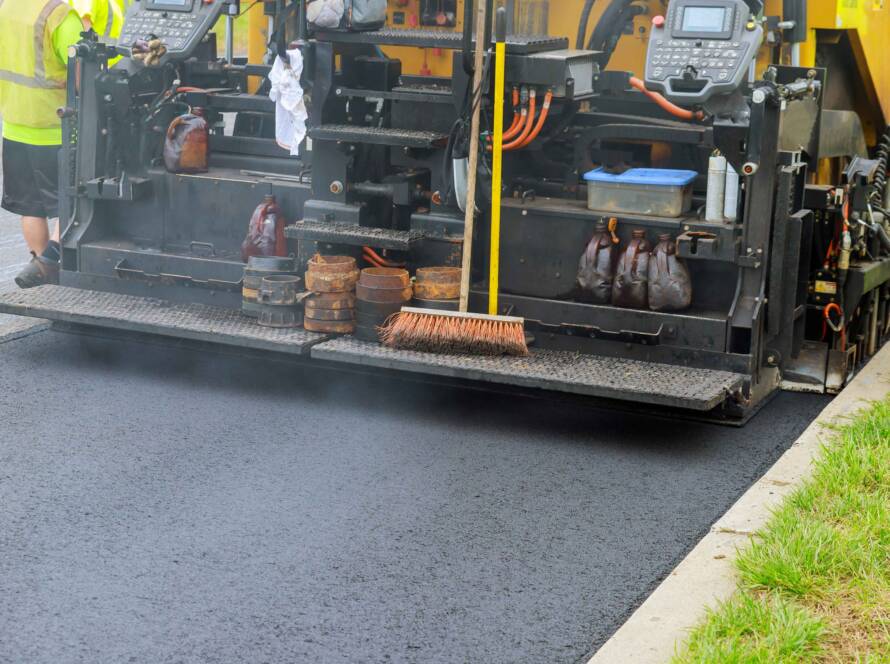Most driveway problems in the UK don’t start with the installation — they start quietly, months or even years later, because of a simple but costly maintenance mistake almost every homeowner makes without realising.
This mistake doesn’t show up overnight. Instead, it gradually weakens the surface, allows moisture to creep in, and accelerates fading, cracking, sinking, and early deterioration.
So what is it?
Neglecting regular surface cleaning and protective maintenance.
Yes — the simplest step is the one most often forgotten.
Here’s why it matters more than you think.
1. Dirt and Debris Slowly Break Down the Surface Layer
Whether it’s resin, block paving, or tarmac, your driveway is constantly exposed to:
- Moss
- Algae
- Road grit
- Oil drips
- Air pollution
- De-icing salts brought in by car tyres
Over time, these contaminants settle into the pores of the surface.
When this isn’t cleaned off, the surface begins to break down, losing its protective layer.
This leads to:
- Fading colour
- A rough or patchy appearance
- Weakening of resin binders
- Increased water absorption (which leads to cracks)
Even driveways that looked perfect on installation can start ageing early if they’re never properly cleaned.
2. Standing Water Turns Small Issues Into Major Damage
Poor maintenance doesn’t just make a driveway look tired — it encourages water to settle in areas that should remain dry.
When debris blocks joints, edges, or drainage points, water begins to sit on the surface.
On UK driveways, this often leads to:
- Frost damage in winter
- Loose block paving
- Softened tarmac
- Erosion of jointing sand
- Sub-base weakening beneath the surface
A simple clean every few months prevents water from collecting where it shouldn’t.
3. Moss and Algae Don’t Just Look Bad — They Break the Driveway Apart
Moss and algae grow quickly in the UK’s damp climate.
The problem is that they trap moisture inside the surface.
This constant dampness results in:
- Cracks forming faster
- Resin lifting
- Edges breaking down
- Block paving shifting
- Slippery, unsafe surfaces
Many homeowners only remove moss when it becomes obvious — by then, damage may already be happening beneath the surface.
4. Oil and Chemical Stains Eat Into Certain Surface Types
Tarmac and resin driveways are especially vulnerable to oil penetration.
When oil sits for months without treatment, it can soften the surface and create permanent marks.
Common household culprits:
- Car engine oil
- Brake fluid
- Power steering leaks
- BBQ grease
- Cleaning chemicals
Regular light cleaning prevents these substances from settling deep into the surface.
5. The Simple Fix: A Yearly Clean and Reseal
Proper maintenance doesn’t need to be expensive or complicated.
A long-lasting driveway usually requires:
✓ A professional clean every 12–18 months
This removes built-up grit, moss, oil, and debris.
✓ Periodic re-sanding (for block paving)
This keeps the structure tight and prevents shifting.
✓ Resealing when needed (especially for resin and tarmac)
Sealant adds a protective layer that resists water, stains, and UV fading.
Homeowners often skip these steps — not because they don’t care, but because driveways don’t show damage until it’s too late.
6. Why Proper Maintenance Saves Money in the Long Run
A well-maintained driveway can easily last twice as long as a neglected one.
Good maintenance prevents:
- Costly crack repairs
- Replacing loose blocks
- Full resurfacing or relaying
- Sub-base failures
- Drainage repairs
A small effort once or twice a year keeps the driveway structurally sound and looking new.
If your driveway already shows wear — cracks, dips, fading, moss buildup — you may need a professional assessment before the damage spreads.
For expert help, you can contact our team here:
Final Thoughts
The biggest driveway maintenance mistake in the UK is simply ignoring the surface until problems appear. A driveway is one of the first things people see at your home — and one of the easiest to maintain with the right routine.
By cleaning, inspecting, and protecting it regularly, you can extend its lifespan, improve safety, and keep your property looking sharp for years to come.


